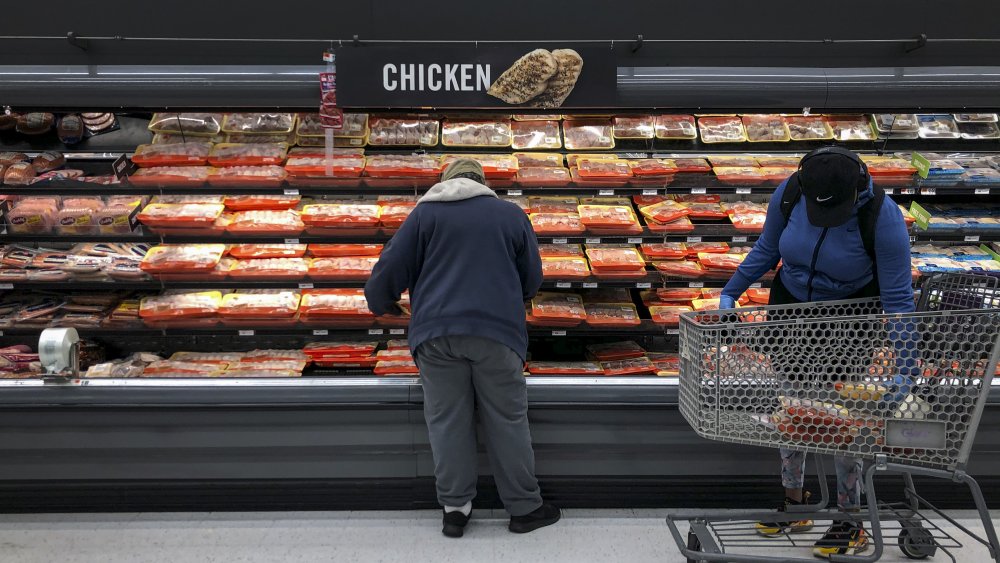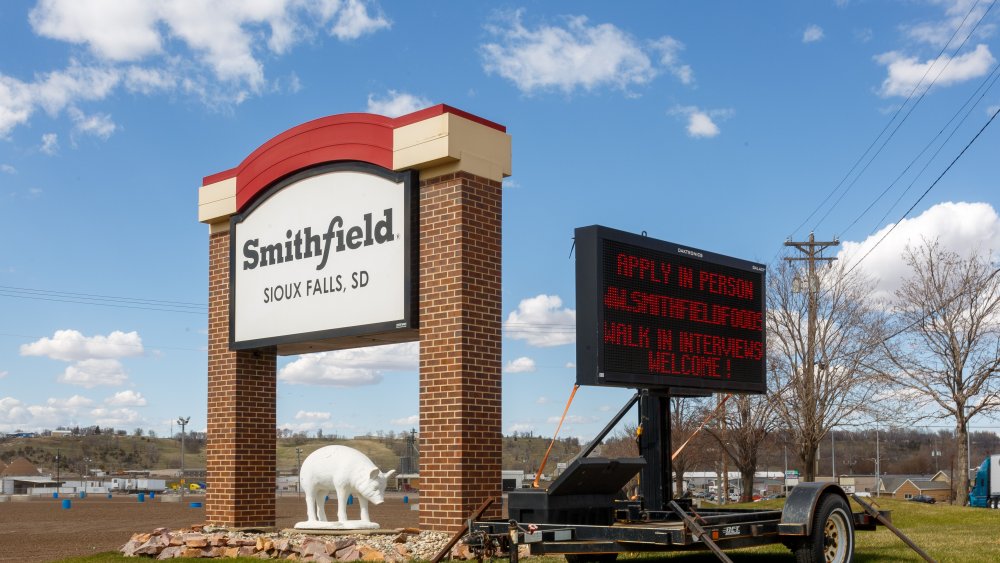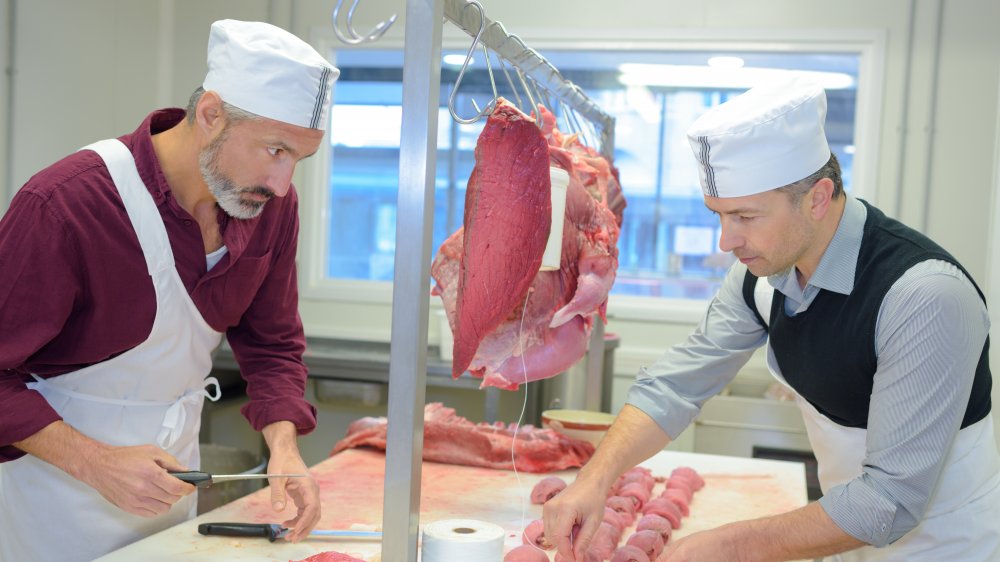The Real Reason Trump Is Keeping Meat Processing Plants Open
Meat industry executives claim we are just weeks away from a shortage of chicken, pork, and beef, and it appears that executive action on the part of the White House may keep that from happening — at least for now. Just a few days after one of the country's biggest meat processing companies, Tyson Foods, suspended operations, President Donald Trump has taken executive action to keep plants open by identifying meat processing as critical infrastructure under the Defense Production Act. According to The Associated Press, the order states, "Such closures threaten the continued functioning of the national meat and poultry supply chain, undermining critical infrastructure during the national emergency."
USA Today reports that the White House is expected to issue safety guidelines for meat plants so the workers would be better protected from the virus; and that the administration will help companies get protective equipment like face masks and shields. Officials have also promised to increase testing among meat packing workers.
But the order also provides meat processing companies with legal cover by protecting them from liability if their workers get sick with the coronavirus. Trump says the order addresses what he calls a "legal roadblock" and that it will "solve any liability problems where they had certain liability problems and we'll be in very good shape."
The order to stay open puts meat producers in conflict with its unions
Trump may say that the order to keep plants open is needed to keep people fed, but the act puts America's largest meat producers in direct conflict with its unions, whose workers are choosing to stay home because they are worried that going to work will expose them to COVID-19. The United Food and Commercial Workers Union (UFCW) says that at least 20 workers have died, and about 6,500 have either tested positive or have been forced to self-quarantine because of COVID-19 so far.
To get a sense of the scale, AP says Smithfield needed to close its plant in Sioux Falls, South Dakota, because the outbreak has sickened 853 workers there. CNN reports that just last week, Tyson had to suspend operations at its plant in Iowa, which employs 2,800 people, because nearly half the COVID-19 cases in the county it operates have been linked to the plant. These closures form part of the reason why meat prices are skyrocketing.
Unions say safe workers are vital to a secure supply chain
Protecting workers at this time is a challenge, because they work in close quarters. Workers tell AP that companies have been lax about sharing information about sick colleagues, kept workers on the production line even if they have developed symptoms, and allowed sick workers to return to work after just two or three days. In announcing the Iowa closure, Tyson Fresh Meats Group President Steve Stouffer said in a statement, "Despite our continued efforts to keep our people safe while fulfilling our critical role of feeding American families, the combination of worker absenteeism, COVID-19 cases and community concerns has resulted in our decision to stop production" (via CNN).
The president of UFCW, Marc Perrone, says the government needs to ensure the safety of its workers as a first priority. "Simply put, we cannot have a secure food supply without the safety of these workers," he said (via USA Today).
Alma Adams, a Democrat congresswoman from North Carolina who chairs the Workplace Protections Subcommittee told Bloomberg, "On Workers' Memorial Day of all days, the Trump Administration shouldn't decide which workers will be safe and which workers will be in mortal danger. Instead, we must reopen safely in a way that centers workers and protects the long-term viability of our food supply chain by keeping employees healthy now, and in the future."


